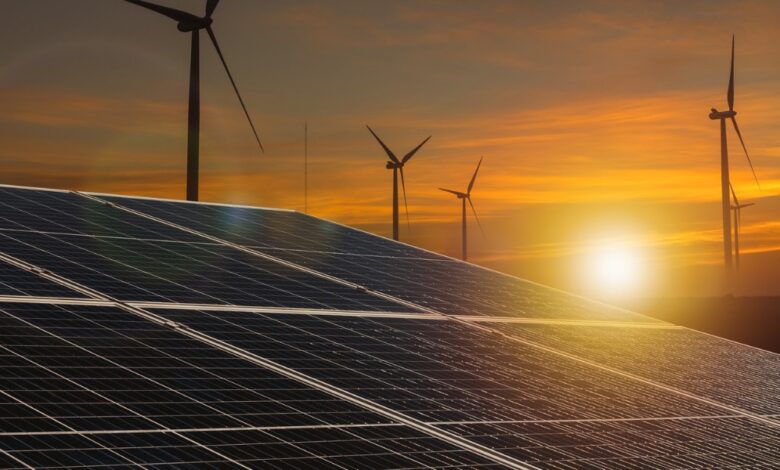Managing Energy Transition Risks in a Changing Political Landscape

Managing Energy Transition Risks in a Changing Political Landscape
Risk Management News
By Kenneth Araullo
According to S&P Global analyst Ludwig Heinz, the evolving political landscape, especially since 2022, is reshaping energy transition priorities. With rising geopolitical risks and changes in government spending, many countries, including the UK and some EU member states, have changed their stance on environmental regulations, such as those related to heat pump targets and the phasing out of petrol and diesel cars.
Public sentiment in Europe has shifted, with voters now more focused on geopolitical risks and cost of living issues than climate change, Heinze said. This shift in priorities was reflected in the European Parliament elections, with leading parties moving away from their recent focus on climate agendas.
These shifts are also reflected in the European Commission’s new Strategic Agenda, adopted in June 2024, with less focus on the green transition than previous agendas.
Europe’s dependence on energy imports, which now account for nearly 60% of available energy, will accelerate the energy transition, Heinze noted. The 2022 terms-of-trade shock, marked by a sharp rise in import prices relative to exports, has had a significant impact on European countries’ growth and financial stability. The fossil fuel price shock has also underscored the need to scale up renewable energy, especially for net energy importers.
According to Haynes, governments now face multiple challenges as fiscal constraints increase. The rise in government debt from 2020 to 2022, driven by efforts to mitigate the economic impact of the COVID-19 pandemic and rising energy prices, has reduced the fiscal space of many governments.
While borrowing costs in advanced economies remain relatively low, the increase in interest rates since 2022 has added to financial pressures, making it difficult for governments to manage deficits without a sharp deterioration in financing conditions.
High costs regardless of the pace of energy transition
No matter the pace of the energy transition, governments will face significant costs, Haynes noted. If the transition slows down, continued spending on fossil fuel subsidies will likely be necessary. These subsidies, along with the loss of value-added tax and other revenues, represent significant fiscal costs.
The recent energy price shock, where government subsidies depressed fossil fuel prices and reduced the incentive to move forward with the energy transition, is a recent example. However, accelerating the transition by cutting fossil fuel subsidies could lead to voter discontent, especially given the large disparity in subsidies across regions, with Europe seeing the largest increase in government debt.
Changing government priorities are also evident in increased defense spending, particularly in Europe, in response to the war in Ukraine, Haynes said. For emerging and frontier markets, economic development remains a key challenge. As energy demand in these markets begins to converge with that in advanced economies, the need to expand clean energy supplies is growing.
However, barriers such as financing, infrastructure gaps, and limited access to technology are slowing down the transformation process, especially given the limited fiscal space in these regions.
According to Heinz, rising energy prices have intensified structural pressures in some European industries. Energy-intensive sectors in Europe have lost their competitiveness due to rising energy costs, with European electric car and solar panel manufacturers facing increasing competition from China.
This situation poses political challenges, as the potential loss of jobs in the European manufacturing sector raises concerns about political stability and social cohesion.
What affects government ratings?
High inflation and the rising cost of living are weighing on government approval ratings, Haynes noted. The affordability challenges these factors pose, particularly for low-income households, have influenced recent election results and could impact progress in the energy transition, depending on how policies are designed and whether the impact is unevenly distributed.
In some Eastern European countries, rising inflation rates have been accompanied by falling government approval ratings, reflecting concerns about the cost of living.
According to Heinz, balancing energy affordability, security of supply, and sustainability remains complex. The rise in energy prices since late 2021, exacerbated by the war between Russia and Ukraine, has shifted the focus from the energy transition to energy affordability and security of supply. The distributional impacts of the energy transition are becoming more important as the process accelerates.
The social aspects of climate policy are becoming increasingly apparent, with lower-income households, who spend a larger share of their income on energy, being disproportionately affected by rising costs.
The threat of declining competitiveness in Europe, especially in energy-intensive industries, has raised concerns about job losses, Heinz says. The experience of past job losses in manufacturing, which have contributed to rising inequality and political polarization in many advanced economies, could lead to increased protectionism or a slowdown in the energy transition in advanced economies.
Developing countries may cite this slowdown as justification for prioritizing economic growth over climate action, especially in areas with limited fiscal budgets and access to basic services.
Different approach across different governments
According to Heinz, countries are taking different approaches to financing investments in the high-energy transition: EU governments rely mainly on carbon taxes, while the United States and China are pursuing more active industrial policies.
These trends create different incentives for companies to develop green technologies domestically. Tools such as the US Inflation Reduction Act, the largest carbon-reduction investment in US history, are impacting global trade by redirecting capital flows to US companies. At the same time, Chinese companies are increasing competitive pressures in global markets.
The recent surge in energy prices has highlighted the importance of stable, affordable energy supplies, which could delay the energy transition in the short term, Heinz said. However, Europe’s dependence on energy imports and the growing energy needs of developing countries could ultimately accelerate the transition.
High fossil fuel prices have encouraged governments to improve energy efficiency and adopt social measures, especially since subsidies may become financially unsustainable in the long run. The pressure to increase investment in renewable energy was most evident when energy prices peaked in Europe, where policymakers sought to increase energy independence from Russia. In developing countries, rapidly growing demand for energy means greater investment is needed to ensure adequate supply.
What do you think of this story? Feel free to share your comments below.






Fetching comments…